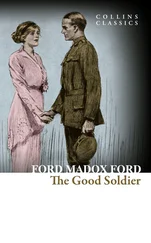Richard Ford - The Ultimate Good Luck
Здесь есть возможность читать онлайн «Richard Ford - The Ultimate Good Luck» весь текст электронной книги совершенно бесплатно (целиком полную версию без сокращений). В некоторых случаях можно слушать аудио, скачать через торрент в формате fb2 и присутствует краткое содержание. Год выпуска: 2010, Издательство: Vintage, Жанр: Современная проза, на английском языке. Описание произведения, (предисловие) а так же отзывы посетителей доступны на портале библиотеки ЛибКат.
- Название:The Ultimate Good Luck
- Автор:
- Издательство:Vintage
- Жанр:
- Год:2010
- ISBN:нет данных
- Рейтинг книги:5 / 5. Голосов: 1
-
Избранное:Добавить в избранное
- Отзывы:
-
Ваша оценка:
- 100
- 1
- 2
- 3
- 4
- 5
The Ultimate Good Luck: краткое содержание, описание и аннотация
Предлагаем к чтению аннотацию, описание, краткое содержание или предисловие (зависит от того, что написал сам автор книги «The Ultimate Good Luck»). Если вы не нашли необходимую информацию о книге — напишите в комментариях, мы постараемся отыскать её.
"His prose has a taut, cinematic quality that bathes his story with the same hot, mercilessly white light that scorches Mexico."-
The Ultimate Good Luck — читать онлайн бесплатно полную книгу (весь текст) целиком
Ниже представлен текст книги, разбитый по страницам. Система сохранения места последней прочитанной страницы, позволяет с удобством читать онлайн бесплатно книгу «The Ultimate Good Luck», без необходимости каждый раз заново искать на чём Вы остановились. Поставьте закладку, и сможете в любой момент перейти на страницу, на которой закончили чтение.
Интервал:
Закладка:
“This is the peewee league,” he said.
“What did they do to him?” she said.
He traced his finger down the rough door molding. “Nothing interesting. I think they tied a roach bag on his head. I’m not sure. He didn’t know anything, he just had the right stuff.”
“That’s nice,” she said.
“They try to be humane down here.” It seemed like a waste of time to talk about Sonny. He stood in the doorway and admired her features relaxing in the green air.
“How do you feel?” she said, looking at him. “You look a little peaked.”
He put his ear against the adobe. He could feel himself letting go a little. “A little detached. Like I was trying to bust out. I don’t mind feeling that way usually. But I mind it now, I’m not sure why.”
“Do you trust this guy Bernhardt?”
“If I knew him in the States I’d be sure.” It was something the Italian girl had said the night before in the same bed, no reference frame. It was odd to hear himself say it. Someplace in the colonia a sound truck began to play a record of someone singing passionately about love. It was the everyday event. He couldn’t understand the words, but the sound consoled.
“So who do we pay?” Rae said.
“A judge. But it’s Bernhardt’s trick.”
“And what do I have to do?” She lay backward on the bed in the dying light and covered her eyes with her arm. His stomach flinched high up where a pill wouldn’t help.
“Nothing,” he said “You can leave.”
“Maybe I will,” she said.
She turned her cheek against the bedspread and lay still a moment. “This bed smells like your last guest,” she said.
He didn’t answer. His mind wandered back up into the day toward the Italian girl but wouldn’t reach all the way. Everything was the way he wanted it. She lay on the spread without moving, her arm over her eyes, talking into the air. “I discovered something, you know,” she said slowly, as if she could see it out in the blindness.
“What’s that?”
“Love is a kind of loss,” she said. “You know what I mean?” She breathed in heavily. “I never realized that before I lived with you. You probably knew it, though, didn’t you? Not that there’s anything to do about it.” The music truck wove through the terraces and down Reforma hill. She was waiting for him to answer. She knew what he knew. “You don’t have any capacity for small talk anymore, Harry. I’m sorry.” She leaned on her elbows and looked at him, her green eyes dry and blinking. “You used to, when we were in Morgan City. You used to jabber. And then you quit. I thought about that while I was gone.” She let her head fall and swung her hair behind her. She made him feel kind. “Couldn’t we make love?” she said, gazing at the ceiling as though she was talking to him there, somewhere up out of the cool air in the room. The music truck turned a corner and came closer, on a closer street. He felt transported now, somewhere indistinct, drawn outside of himself. “It’ll change your luck.” She put her hand out and touched his chest, measured his breathing, and smiled, and he felt bad luck moving out of him as if the atmosphere had become too fine for anything inessential to stay alive.

At six o’clock Rae went into the bathroom and stayed a long time. Light was down and the mountains he could see from the bed through the window wore the same smeared patches of black, like silk draped beneath an orange blaze. It was the dangerous time now, the end of day, the time when prisoners in the prisión gave up and started patting their veins. It had become the worst time in Michigan when Rae was gone, desperation time, when the lake changed from the natural sequins of afternoon to dull oyster grey, and the first dim lights of the deep, white-fish trollers froze in through the gloom. It was, he thought, listening to the shower hiss behind the door, a bad time to be anywhere by yourself. It had come to be the time he liked in Mexico, as if the country was the tissue of everyone’s loneliness.
He got up, put on his pants, and walked in his bare feet onto the little pink stone patio that opened on the city and the smooth white-rock roofs terraced into the evening. The air was damp and eucalyptus sweet, and he could see a long way up the hazy valley beyond where the city stretched to an end, to where the light was amber and smokes dwindled out through the palms from the pueblos you couldn’t see in daylight. The city lay out in the dun darkness with no lights burning, as if the space were empty and there was no one alive for miles.
When Rae had been gone three months he had driven into South Bend and caught the train to Chicago to see a woman he’d met in a bar in Charlevoix, whose husband worked for a company that kept him in California. He could remember dozing in the parlor car in the early-morning silence, watching the snow fall in the Indiana freight yards, waiting for the train to move. While he sat, a string of cars was pulled away from near the window and he could abruptly see out in the yards toward the St. Joseph, where a snowman had been put up in the center of the eastbound main line to Detroit. The snowman had been built that morning. Its lineaments were crisp, and there were heavy prints flattening a circle around the base. The snowman was tricked out with gravel features, a blue and gold watch cap, and a half broomstick, and stood between the shining frozen rails, smiling perfectly into the face of its own hot doom.
When he hit Chicago it had stopped snowing and the wind had settled, and the woman came uptown to meet him. He drove them in her car to the South Side into Hyde Park, where the buildings were old and elegant and built close to the street. At a stoplight a block from her house, a long purple Toronado with Indiana plates had eased away from the curb and blocked both southbound lanes, and Quinn had touched the horn to get past. But when he came abreast, the light changed red, and the driver of the Toronado jumped out of his car and ran toward him.
“Why the fuck did you honk at me?” the man screamed at him. He was tall and black and wearing a long leather jacket. He kept looking down the street quickly as if someone was watching him.
Quinn opened his window. “To get you off the dime,” he said up at the man. He glanced back at the light.
The man’s features began to strain, fighting a lawless urge inside himself, an urge that had an old-time hold on him. His mouth seemed to get longer, and Quinn recognized that look. It was the maniac expression of someone about to go to war, the look of fighting off cowardice with insanity. He sympathized, but there was nothing he could do, “You fuck.” The man raged and stamped his feet and ground his hands together. But at that moment the light went green, and he looked up at the man and said, “Can’t help, pal,” and eased away, and the man suddenly swung widely, a hard plunging blow, that hit him on the arm above the elbow and tore a gash through his down jacket and into his triceps, spilling blood and down over the windowsill and making him barge into the other lane and jump the curb. The woman said, “Oh shit,” and he began to feel the blood drying.
When he had bailed out, the man had run already to his Toronado and was racing up Kenwood Avenue, leaving Quinn standing in the snow in the middle of the street in terror, wishing he had a gun to blow somebody’s head off.
The cut was superficial and didn’t need stitches. The woman put Merthiolate on it in her bathroom and said she thought he’d been cut with a bottle opener or a key ward, and that the man had been swinging at his face when the car moved, and he had gotten lucky. His jacket was a loss and he had gotten blood on his whipcords, but when he had spent an hour with the woman in her apartment across from Jackson Park and the I.C., he made up a story that he wanted to see a friend who lived on the North Side, and took a cab up to Randolph Street and stayed all night by himself in the Holiday Inn overlooking the lake, unable to sleep until he could see the winter haze begin to brighten and clear toward Michigan.
Читать дальшеИнтервал:
Закладка:
Похожие книги на «The Ultimate Good Luck»
Представляем Вашему вниманию похожие книги на «The Ultimate Good Luck» списком для выбора. Мы отобрали схожую по названию и смыслу литературу в надежде предоставить читателям больше вариантов отыскать новые, интересные, ещё непрочитанные произведения.
Обсуждение, отзывы о книге «The Ultimate Good Luck» и просто собственные мнения читателей. Оставьте ваши комментарии, напишите, что Вы думаете о произведении, его смысле или главных героях. Укажите что конкретно понравилось, а что нет, и почему Вы так считаете.







![Theresa Cheung - The Dream Dictionary from A to Z [Revised edition] - The Ultimate A–Z to Interpret the Secrets of Your Dreams](/books/692092/theresa-cheung-the-dream-dictionary-from-a-to-z-r-thumb.webp)




